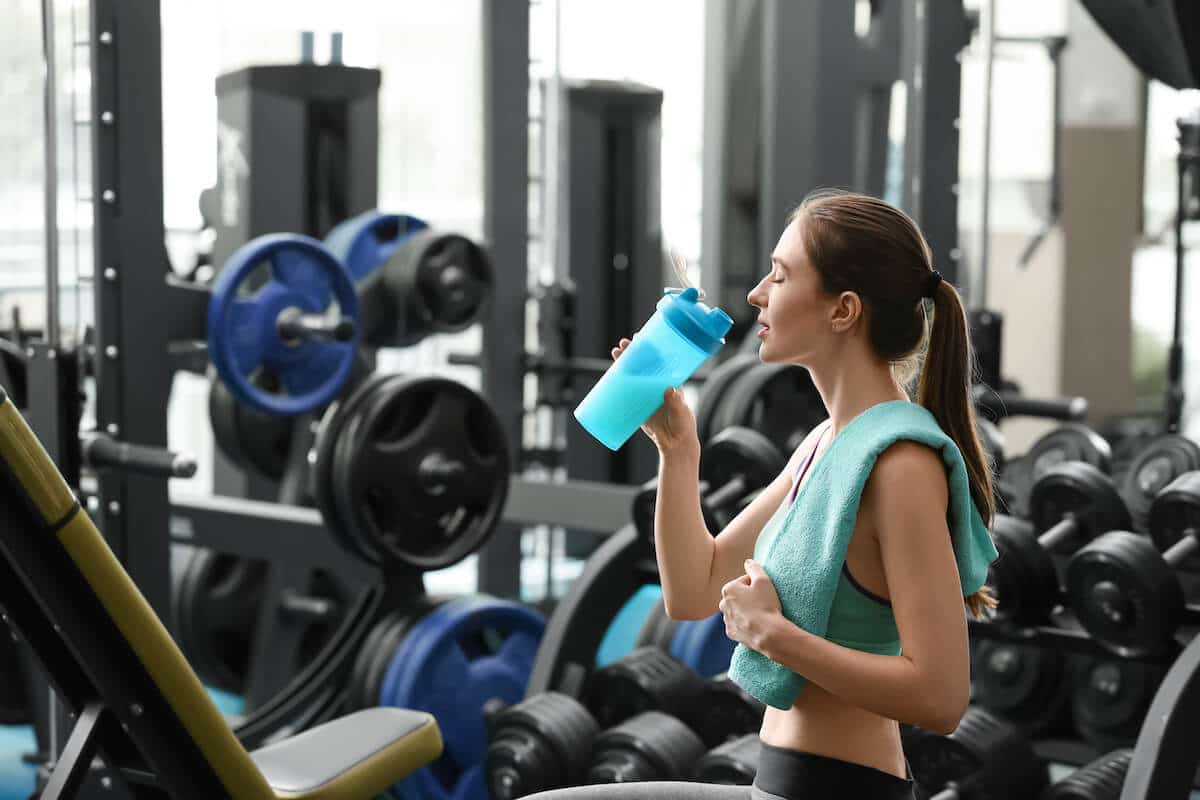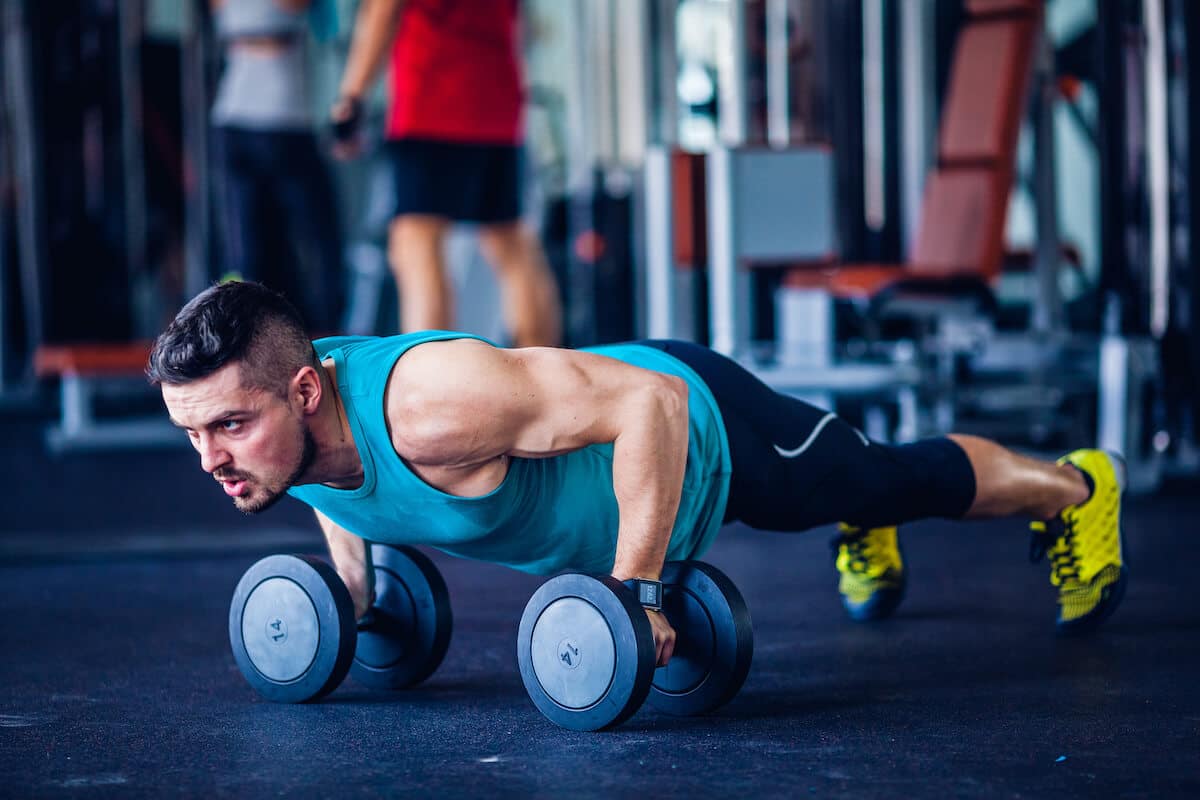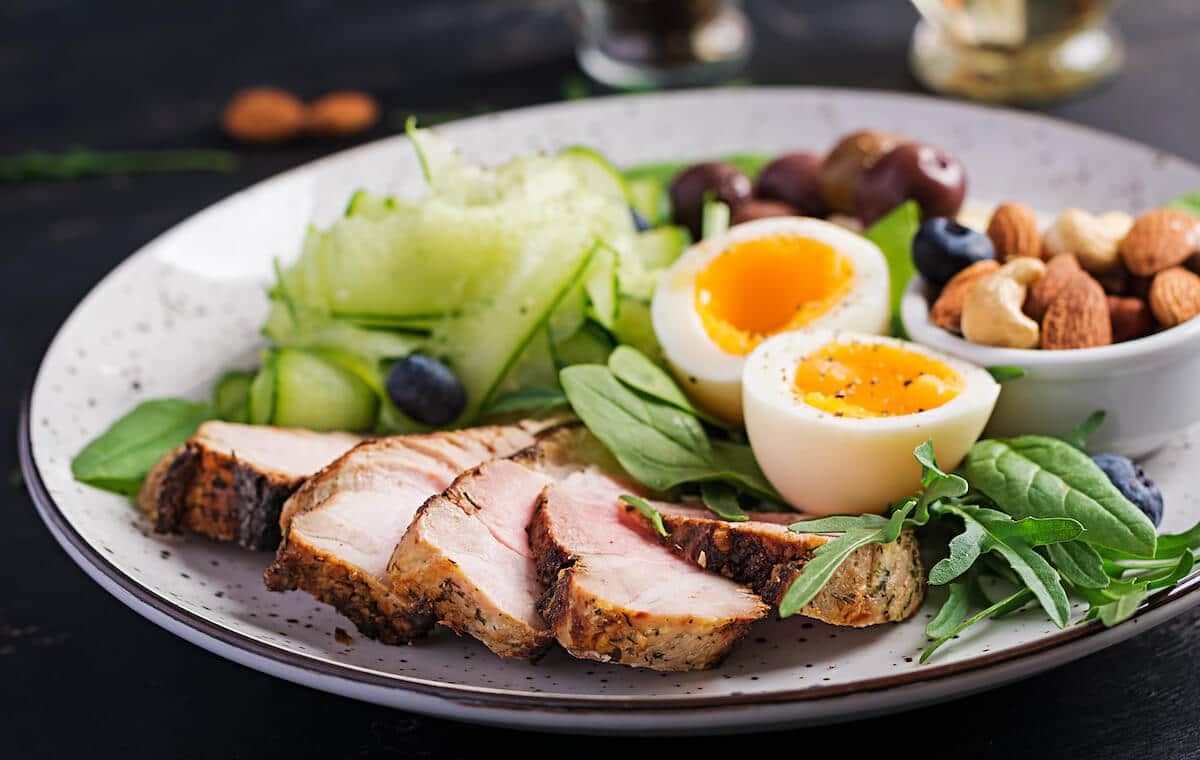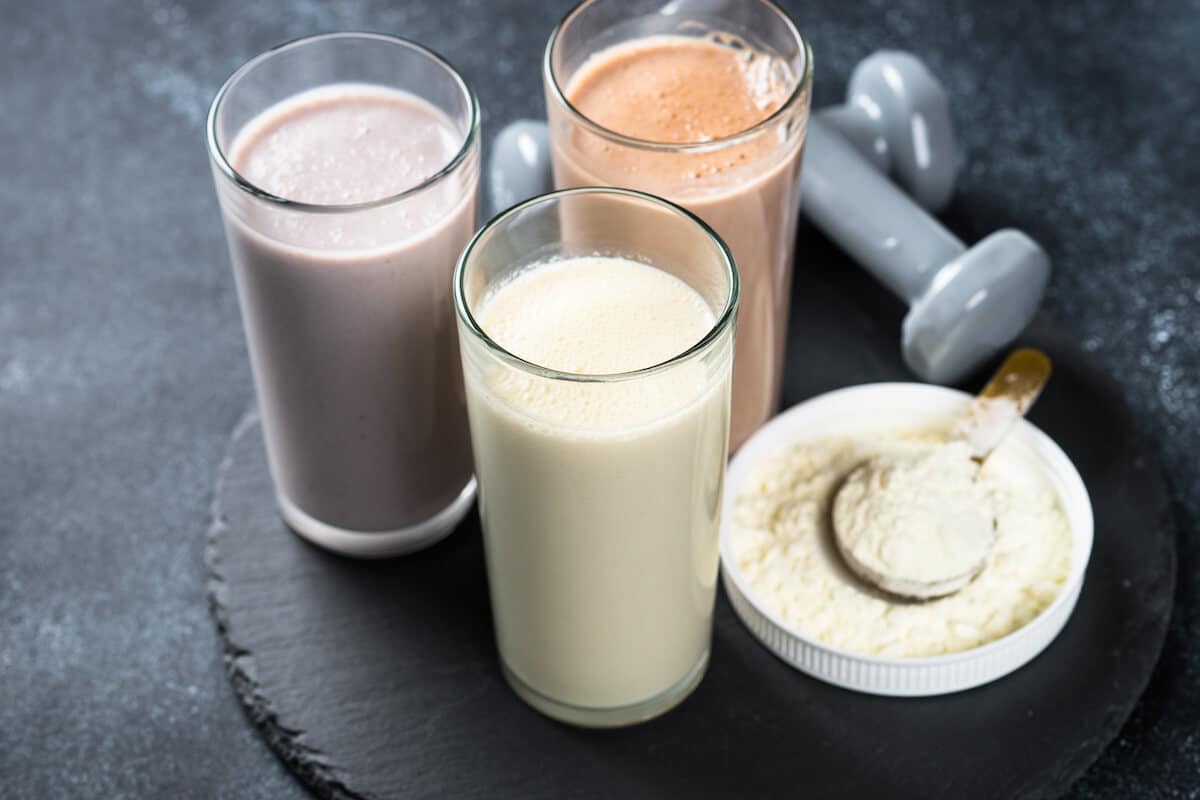
06 Dec How Much Protein After a Workout Should You Take?
There’s a reason why you often see athletes, bodybuilders, and other dedicated gym-goers taking protein supplements at the gym. A regular supply of post-exercise protein is essential, especially if you want to build muscle and keep up your energy. The question is: How much protein after a workout?
Let’s look at how much daily protein intake you should aim for and explore some easy ways to increase your protein consumption. We’ll also review what to look for when buying a protein supplement — because quality matters as much as quantity.
Why You Need Protein
Protein is one of the three macronutrients — namely, protein, carbohydrates, and fats — that your body needs. Protein is made up of amino acids. When you consume it, your body breaks down the protein into amino acids, which are then recombined (through a process known as muscle protein synthesis) and moved through the body to where they’re needed.
Protein has many functions in the body, including building your entire structural framework from your cells through to your bones, organs, and muscle tissue. It’s also needed to produce enzymes, hemoglobin, and hormones, strengthen your immune system, and help transport nutrients around your body.
Whether you’re a competitive athlete or bodybuilder who wants to build muscle mass— or simply someone who wants to keep up your energy so you can easily manage your everyday tasks and your regular workout — you need protein plus resistance training.
Why You Need Even More Protein If You’re Working Out

When you work out, especially if you do so intensively, your body uses a lot of energy. It gets that energy first from the glucose that’s freely available in your body. When that runs out, your body starts breaking down your muscle to access the glycogen stored there. This muscle breakdown is called catabolism.
To counteract catabolism, and maintain and build your muscle mass, you need to give your body the basic building blocks of protein — i.e., the essential amino acids:
- Leucine
- Isoleucine
- Valine
- Lysine
- Threonine
- Histidine
- Tryptophan
- Phenylalanine
- Methionine
Muscle protein synthesis especially needs the branched-chain amino acids (BCAAs) — leucine, isoleucine, and valine — in combination with resistance exercise. Leucine is particularly important as it triggers the process of muscle growth.
Protein — and the BCAAs — also helps with muscle recovery and reduces muscle soreness after intense workouts, particularly when you’re pushing your body that little bit harder, for example, by increasing your reps.
As such, you need protein to help sustain your body through intensive exercise. But how much protein after a workout you should take depends on a variety of factors.
What Should Your Post-Workout Protein Intake Be?
Your body needs enough protein to replace what you use during a workout. Your specific daily protein requirements depend on your body mass and your level of activity, as well as your stage of life.
To calculate the amount of protein you need per day, start with your body weight.
If you’re only moderately active, you need around 0.8 grams of protein per kilogram of body weight each day. If you take part in regular, intensive exercise, you need at least 2 grams per kilogram each day — more if you’re an endurance athlete. And if you’re an older adult who is starting to lose muscle mass, you need at least 1.5 grams per kilogram each day.
What does that mean in terms of how much protein after a workout? It does depend on the type of protein and what else you eat with it, but the International Society of Sports Nutrition recommends between 0.25 and 0.4 grams per kilogram of body weight per meal, and at least four meals a day if you want to build muscle.
Important note: Before you consider how much protein after a workout you should consume, assess your general health. If you have any health issues or concerns, especially reduced kidney function, check with a registered dietitian or another professional healthcare provider before you add extra protein to your meals.
When You Need Protein

How much protein after a workout is just one part of the equation. Let’s look at exactly when you need that protein.
Your body doesn’t store protein and it uses it up continuously during the day, which means you need a constant supply of protein.
Not so long ago, the prevailing thought was that you needed to take advantage of a very specific anabolic window of about an hour either pre-workout or post-workout to counteract catabolism and effectively build muscle.
However, recent research has shown that the anabolic window might be much longer than was originally thought. As such, whether you consume protein immediately before or after your workout might not matter so much.
Instead, try to give your body a constant supply of amino acids to use. As a general rule of thumb, aim for at least four meals spread out over the day, consuming the right number of grams of protein at each meal, depending on your body weight.
How to Get Your Post-Workout Protein
Now that you know how much protein after a workout to take, let’s review how to fulfill your protein needs.
A good place to start is with whole foods. You’re looking for high-quality sources of protein, which are ideally complete proteins. Complete proteins contain all the essential amino acids that you need to build muscle. Some good animal sources are beef, fish, chicken, eggs, and dairy products like Greek yogurt, or even chocolate milk.
Some plant-based proteins like quinoa, hemp, soy, and chia are also complete proteins, but many are not. To create a complete protein you often need to combine plant-based sources, for example, rice with beans, or peanut butter on whole-grain bread.
If you’re working out intensively though, it’s likely to be a challenge to get enough protein from whole foods, and that’s where protein supplements come in.
The Benefits of Protein Powder

Protein powder supplements help you get the protein you need, quickly and easily, and they’re ideal for a meal on the go or as a pre-workout or post-workout snack. There are different types of protein supplements. For example, whey protein isolate is digested and absorbed very fast and therefore quickly available to your body. On the other hand, casein is a slow-digesting protein that offers a slow-release effect.
You can’t meet all your nutritional needs through protein alone, so don’t forget about the other macronutrients — carbs and fats. Also, make sure to include fruits and vegetables in your diet, which are packed with vitamins and minerals, not to mention the fiber you need to keep your digestion working well.
Try making a protein shake with protein powder, plus a banana, some Greek yogurt, peanut butter, oats, berries, spinach, and chia seeds. That way, all your bases are covered.
How to Choose the Best Protein Powder
When you’re looking for a protein powder, it’s important to choose a high-quality product that is free from:
- Added sugar or artificial sweeteners, although natural sweeteners like monk fruit and stevia are fine
- Artificial flavors and colors
- Preservatives
- Gluten
- Emulsifiers like xanthan gum, guar gum, or carrageenan
- Pesticides
- Heavy metals
If you’re looking to build muscle (rather than just to increase your calories), be sure to check the protein content of the supplement. You need a protein content of at least 70% for muscle building, but more is even better.
Also, check the supplement’s protein bioavailability to ensure your body can use it. For example, Ingredient Optimized ioWhey Protein has been scientifically proven to be far more bioavailable than non-optimized whey protein.
You’ll find ioWhey in products such as Performix ioWhey protein and Kaged Muscle Clean Meal.
How Much Protein After a Workout?
Everyone needs protein to survive, but when you’re involved in intensive exercise and your goal is to build muscle and keep your energy levels high, you need extra protein. Your body uses the amino acids from the protein you consume to build and maintain your muscle.
When you’re looking at how much protein after a workout, consider your body weight and level of activity, as well as the recommended protein intake per meal. Then, aim to get that protein through a combination of whole foods and high-quality supplements that can support both your general health and your specific muscle-building goals.


